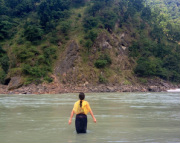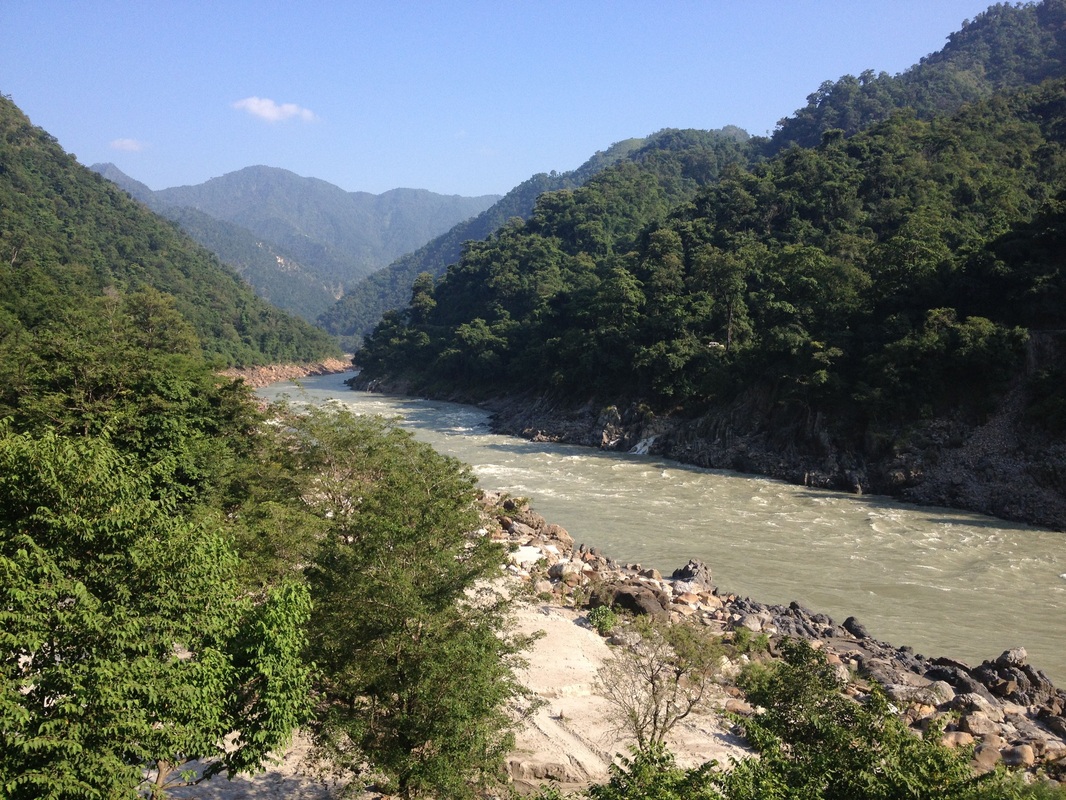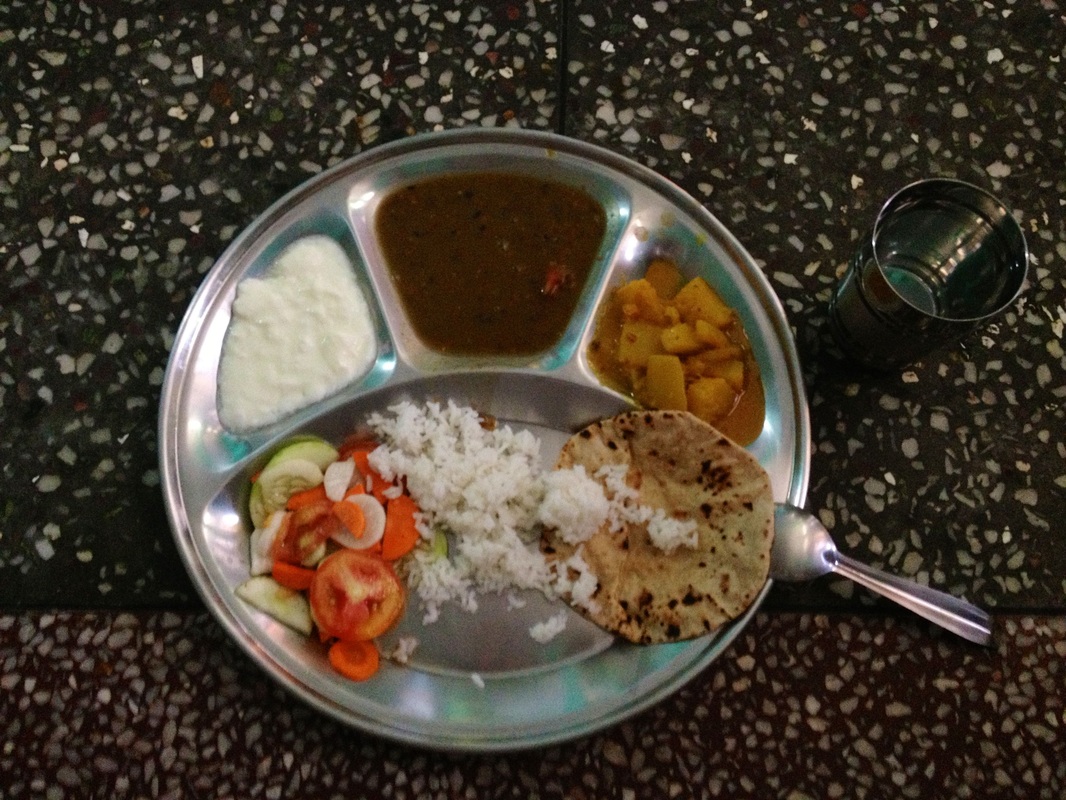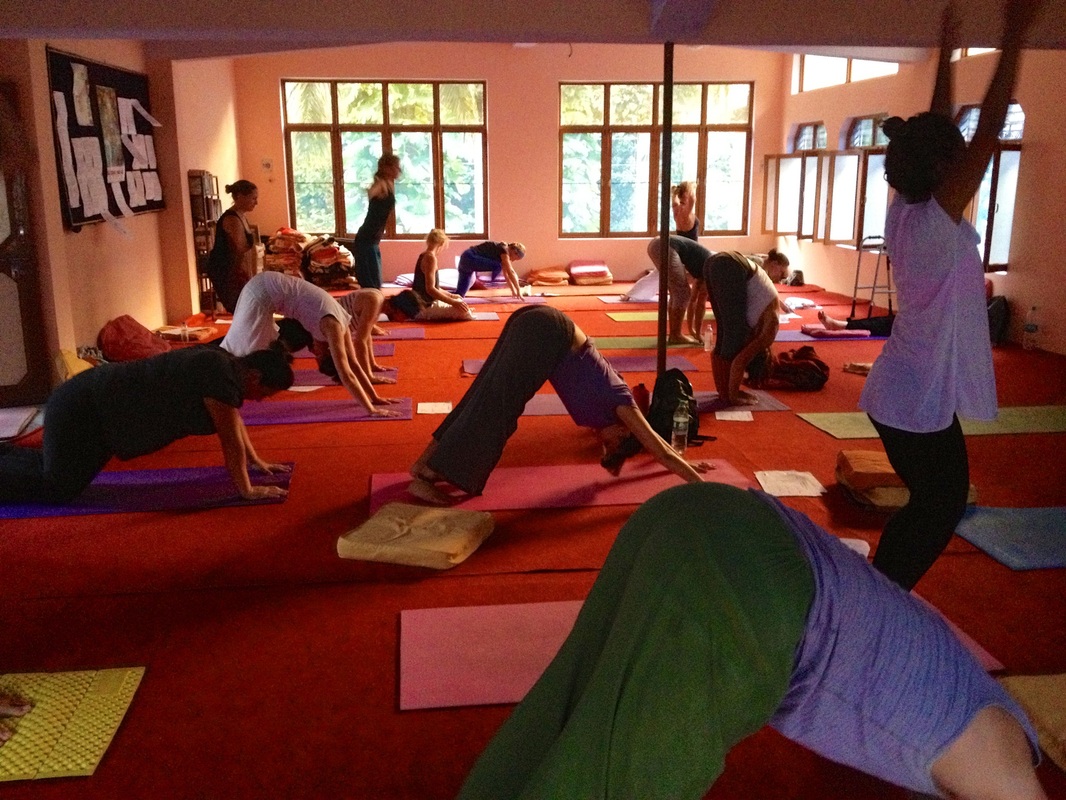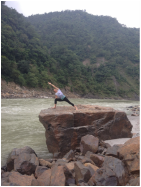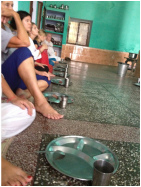10 Things I Learned in An Ashram in India
Ashram living is a transformative experience no matter what your age, belief system or lifestyle. I just spent 17 days at an ashram in Rishikesh, Northern India. Otherwise known as "the yoga capital of the world," I studied this ancient practice in the foothills of the Himalayas next to the mighty Ganges River. Here's what I learned:
1. My body will quickly adapt to a new environment.
Ashram living is structured. From 5:30am – 9:00pm each day we practiced yoga asana, meditation, pranayama (breathing), cleansing, chanting and walking. There was no coffee, sex, alcohol, meat, telephone or Internet. Physically I felt strong and balanced, and mentally I felt refreshed and clear.
2. Yoga is more than physical postures; it’s a way of life.
In the west, we know yoga as asana. However, yoga is a much broader concept to encompass six branches of yoga: Hatha (asana), Karma (service/action), Bhakti (devotion), Jnana (knowledge/wisdom), Tantra (ceremony) and Raja (self-control). I learned new tools and techniques for each branch of yoga that I can now integrate into my daily life.
3. Yoga leads to true happiness.
Yoga practices balance and calm the mind and body releasing inner tensions and drawing us ever closer to our natural state. Yoga provides the tools that help us develop unconditional love and experience profound peace.
4. The hardest part about meditation is beginning.
My mind makes a dozen excuses why I can’t meditate at home. But I learned that once I stretch, find a comfortable seated position and close my eyes, meditation just happens.
5. Benefits arise from experience.
For years I’ve understood the benefits of meditation mostly from an intellectual sense. Now I’m inspired to continue because I’ve received the benefits from true experience.
6. I must stay in control of my mind or it will control me.
Even when no new outside information came into my reality, sometimes my mind would fixate and worry about something, anything, whether it was based on feeling or fact. Being unplugged allowed to me to see this clearly and laugh at the ridiculousness of my monkey mind.
7. I like silence. A lot.
From an evening meditation until after lunch the next day, we practiced mauna, or silence. It was calming and refreshing not to have to talk or listen to anyone (including myself).
8. Self-discipline is a must.
It was nice to rely upon the bell at the ashram to let me know what to do next. But the truth is, no one is going to ring a bell for me at home to let me know it’s time to practice yoga so I must take full responsibility for myself.
9. Vegetarianism is important for our bodies and our planet.
I may not stay vegetarian forever. But now I understand that if I choose to consume meat again it will be important to eat it sparingly, organic and grass fed.
10. Find meaning in everything.
Our lives are made up of a series of tiny moments connected together. Whether I am washing the dishes, having a conversation with my partner or writing a client proposal, I can choose to be fully present and find meaning in everything I do.
1. My body will quickly adapt to a new environment.
Ashram living is structured. From 5:30am – 9:00pm each day we practiced yoga asana, meditation, pranayama (breathing), cleansing, chanting and walking. There was no coffee, sex, alcohol, meat, telephone or Internet. Physically I felt strong and balanced, and mentally I felt refreshed and clear.
2. Yoga is more than physical postures; it’s a way of life.
In the west, we know yoga as asana. However, yoga is a much broader concept to encompass six branches of yoga: Hatha (asana), Karma (service/action), Bhakti (devotion), Jnana (knowledge/wisdom), Tantra (ceremony) and Raja (self-control). I learned new tools and techniques for each branch of yoga that I can now integrate into my daily life.
3. Yoga leads to true happiness.
Yoga practices balance and calm the mind and body releasing inner tensions and drawing us ever closer to our natural state. Yoga provides the tools that help us develop unconditional love and experience profound peace.
4. The hardest part about meditation is beginning.
My mind makes a dozen excuses why I can’t meditate at home. But I learned that once I stretch, find a comfortable seated position and close my eyes, meditation just happens.
5. Benefits arise from experience.
For years I’ve understood the benefits of meditation mostly from an intellectual sense. Now I’m inspired to continue because I’ve received the benefits from true experience.
6. I must stay in control of my mind or it will control me.
Even when no new outside information came into my reality, sometimes my mind would fixate and worry about something, anything, whether it was based on feeling or fact. Being unplugged allowed to me to see this clearly and laugh at the ridiculousness of my monkey mind.
7. I like silence. A lot.
From an evening meditation until after lunch the next day, we practiced mauna, or silence. It was calming and refreshing not to have to talk or listen to anyone (including myself).
8. Self-discipline is a must.
It was nice to rely upon the bell at the ashram to let me know what to do next. But the truth is, no one is going to ring a bell for me at home to let me know it’s time to practice yoga so I must take full responsibility for myself.
9. Vegetarianism is important for our bodies and our planet.
I may not stay vegetarian forever. But now I understand that if I choose to consume meat again it will be important to eat it sparingly, organic and grass fed.
10. Find meaning in everything.
Our lives are made up of a series of tiny moments connected together. Whether I am washing the dishes, having a conversation with my partner or writing a client proposal, I can choose to be fully present and find meaning in everything I do.

About the Author: Stacy Conlon is the Founder and CEO of The Zen Media, a strategic digital marketing consulting firm based in San Francisco exclusively serving the spa and wellness industries. Known as "The Zen Girl" in the social media world, she has over 12 years of experience in spa and hospitality sales and marketing and is also a Certified Wellness Coach. www.thezenmedia.com

